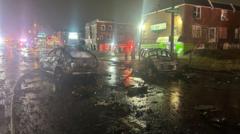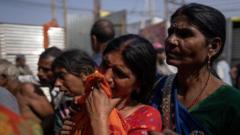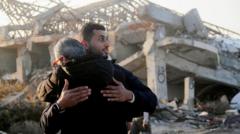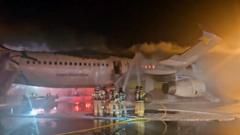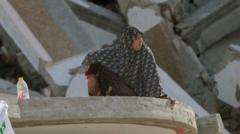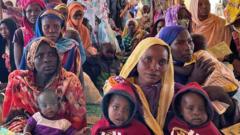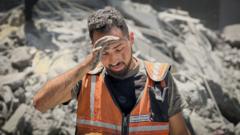The French archipelago of Mayotte faces a severe crisis after Tropical Cyclone Chido wreaked havoc over the weekend, leading to fatalities and significant injuries, prompting authorities to enforce a curfew for safety.
Mayotte's Resilience Tested by Tropical Cyclone Chido

Mayotte's Resilience Tested by Tropical Cyclone Chido
As Mayotte grapples with the aftermath of Tropical Cyclone Chido, a curfew is implemented amid mounting casualty figures and widespread destruction.
In a response to the catastrophic effects of Tropical Cyclone Chido, which struck the archipelago of Mayotte off the eastern coast of Africa, authorities have imposed a curfew to maintain order while emergency aid is being distributed. The cyclone, which brought winds exceeding 124 miles per hour, has resulted in at least 22 confirmed deaths, with officials fearing that hundreds or even thousands more might be lost in the devastation.
The storm ravaged homes and displaced thousands across the territory, which is known to be France’s poorest region. Mayor Ambdilwahedou Soumaila expressed the severity of the situation, stating that over 1,400 people have been injured. He highlighted the peculiar nature of this cyclone, which typically spares Mayotte due to its geographical position, but this time, the storm trajected directly over the islands.
The curfew is set to last from 10 p.m. to 4 a.m. and, while reports of unrest and looting have been minimal, it is a preventative measure amid fears of chaos in the wake of the disaster. Rescue operations are underway with aid supplies being transported from the nearby island of Réunion, as many areas, especially hillside shanty towns, remain inaccessible due to blocked routes and severe damage.
President Emmanuel Macron is expected to visit Mayotte shortly to assess the situation personally and coordinate the relief efforts, emphasizing the importance of immediate government support in such dire times. Rescue workers continue to face challenges in reaching affected areas, prioritizing areas where communities have been most devastated.

